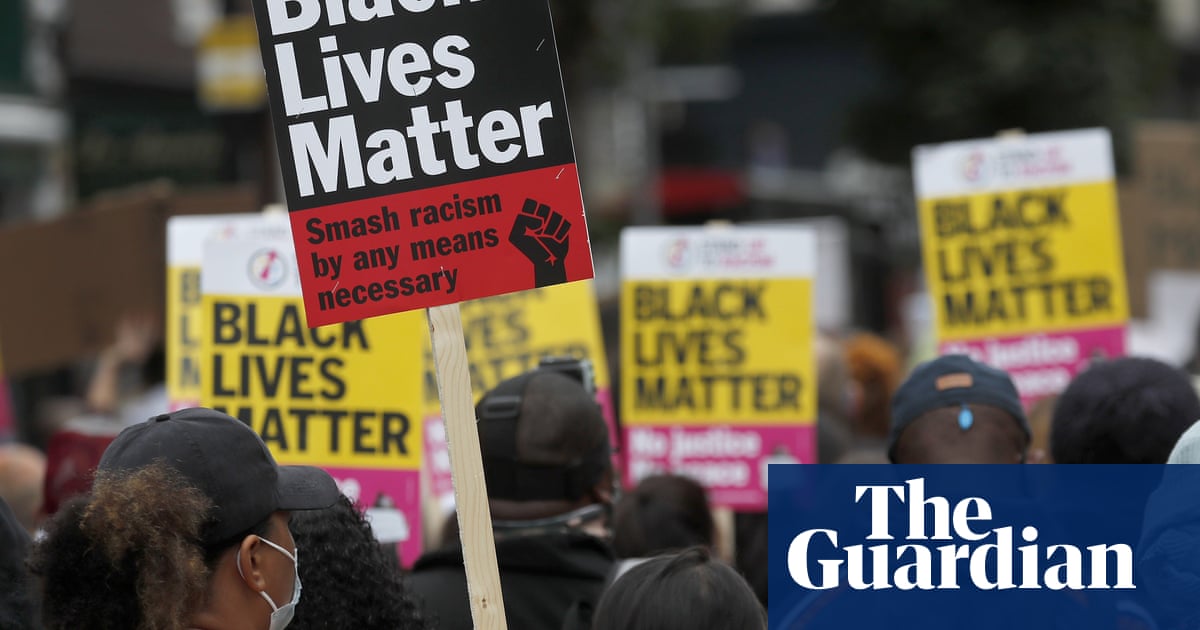
Black Lives Matter activists have launched a toolkit designed to help rural communities across the UK to fight racism in their local area.
Their campaign, BLM in the Stix, is aimed at building on the momentum of June and July, when more than 260 towns and cities held anti-racism protests, from Monmouth in south Wales to Shetland in Scotland. It offers rural communities support to take a stand against racism at a local level.
The online toolkit was launched on Saturday with a protest along the banks of the River Colne in Essex.
“This toolkit is about getting people who are not racist to become anti-racist, especially for people who live in rural areas who might be thinking we don’t have that much racism around here,” said Gurpreet Sidhu, founder of the Wivenhoe Black Lives Matter group and co-organiser of the protest.
“Racism is everywhere and there are people in your community who often suffer in silence.”
The toolkit, developed by Wivenhoe BLM supporters with help from Stand up to Racism Colchester and the Local Equality Commission, provides resources on how to start a campaign in a rural setting, describing some of the key challenges as well as ways to overcome this. It is targeted at white people in rural areas who want to stand up against racism but might not know where to start.
It includes information on how to hold a protest, run educational events and create action plans.
Having organised a BLM demonstration in rural Gloucestershire during the pandemic, Khady Gueye, from the Forest of Dean, was able to support Sidhu in creating a resource for people to share experiences and ask questions.
“In rural areas like mine, there is this idea that we don’t need things like this because there isn’t a big ethnic minority population, but there is a lot of covert racism,” she said.
“People need a platform to share their experiences of racism and prejudice in these areas, where you’re in a much more extreme minority than in bigger cities, and people who don’t really understand need a place to start in trying to engage with and tackle these problems.”
Gueye, 24, said having an open dialogue and sharing resources help to create change. “Especially in places where there’s little to no exposure to people of different ethnicities and cultures, people need a platform where they can ask questions, have those difficult conversations, and be pointed towards books, articles, films, podcasts – whatever it is – to give them an insight into racial injustice and prejudice. They need somewhere to begin.”












